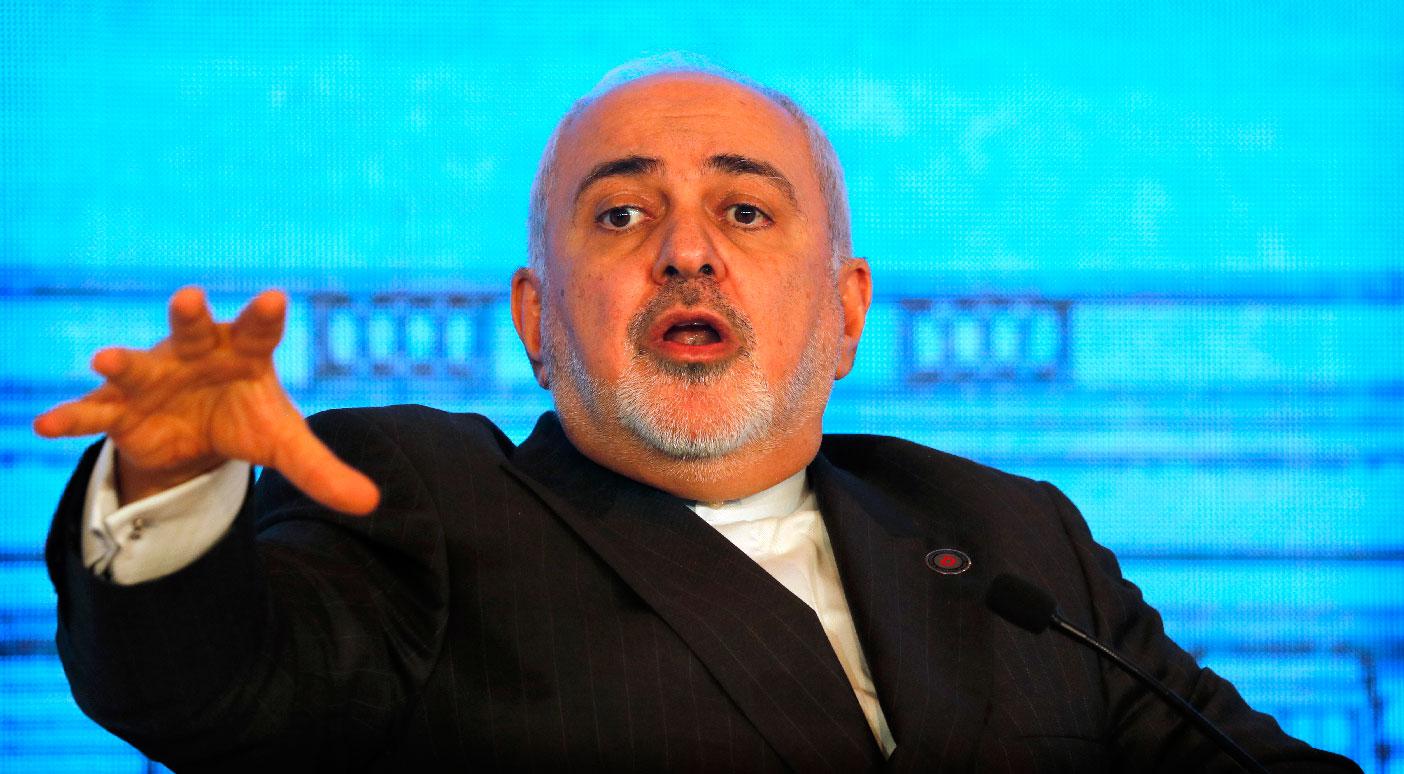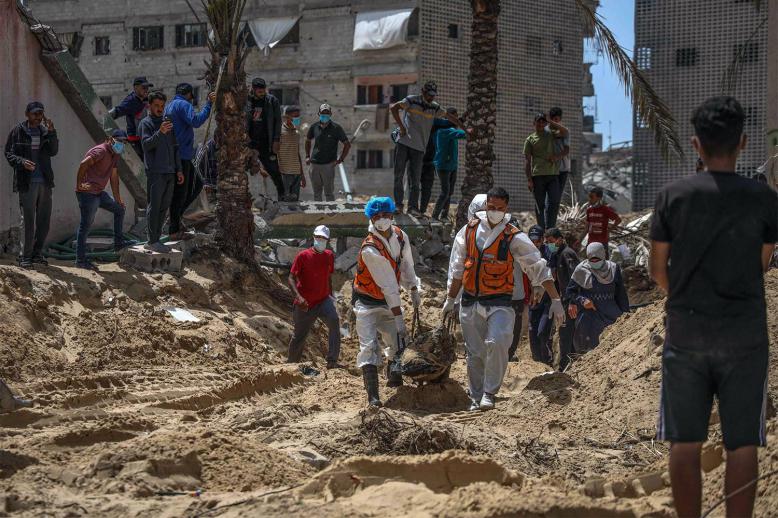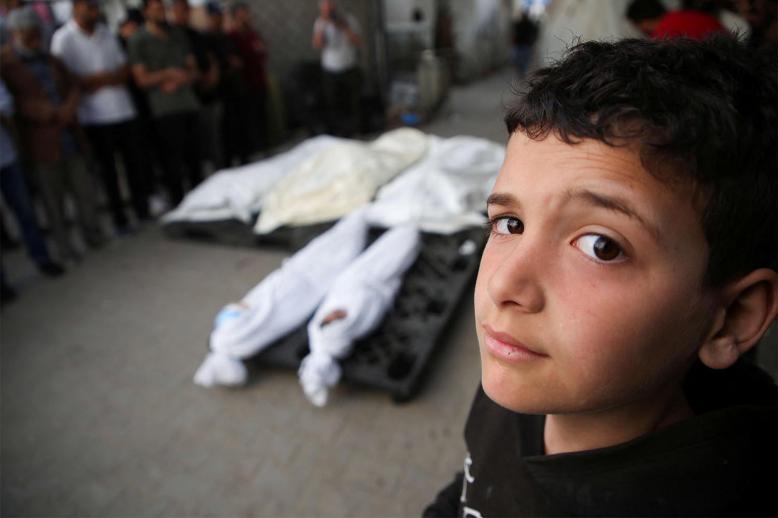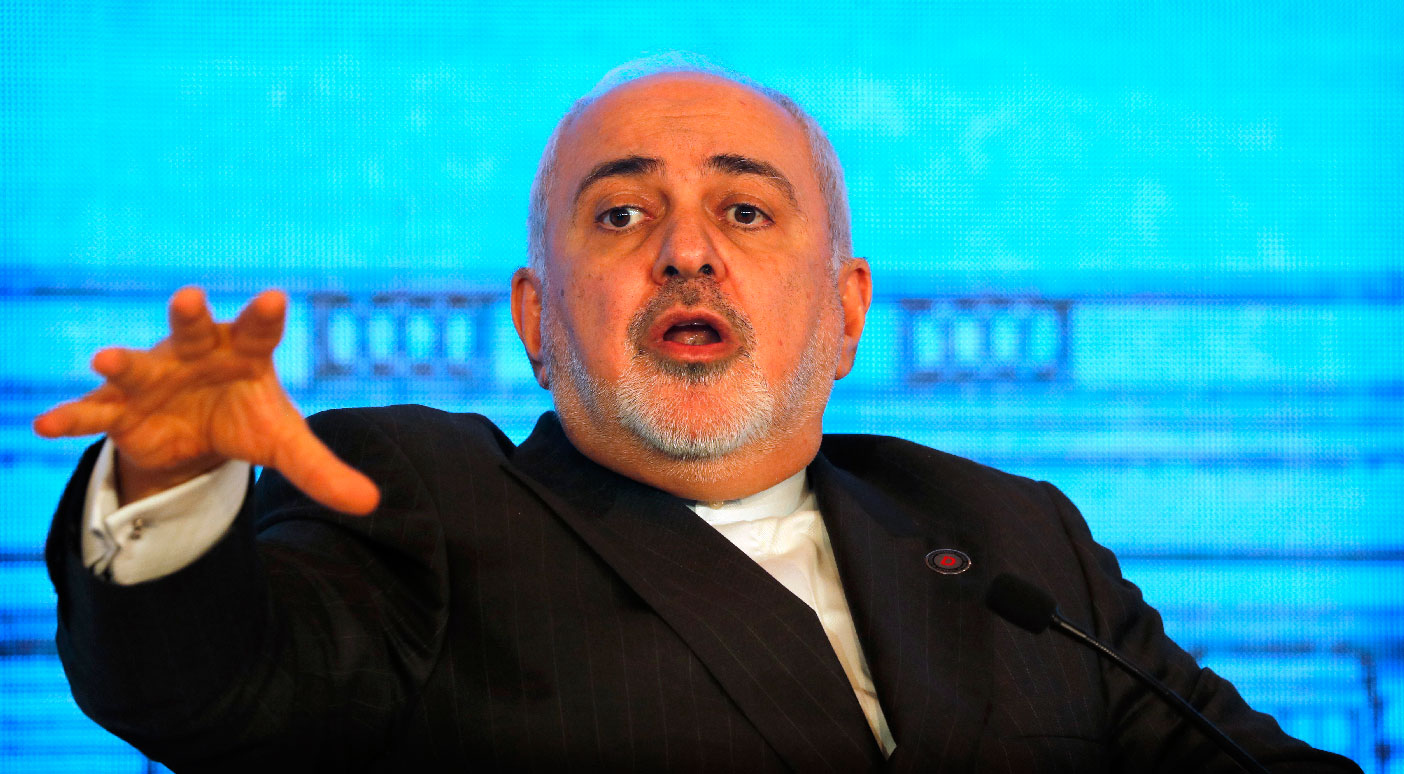Iran says Europe 'bullied' by US, slams 'Trump deal'
NEW DELHI - Iranian President Hassan Rouhani dismissed on Wednesday a proposal for a new "Trump deal" aimed at resolving a nuclear row, saying it was a "strange" offer and criticising US President Donald Trump for always breaking promises.
British Prime Minister Boris Johnson, who has praised Trump as a great dealmaker, called on Tuesday for the president to replace Iran's 2015 nuclear deal with major powers with his own new pact to ensure Tehran does not get an atomic weapon.
Trump said he agreed with Johnson that a "Trump deal" should replace the Iran nuclear deal. In a televised speech, Rouhani told Washington to return to the nuclear pact, which Washington abandoned in 2018, under which Tehran curbed its nuclear work in return for the lifting of international sanctions on Iran.
Since quitting the agreement, Washington has reimposed sanctions to throttle Iran's oil exports as part of a "maximum pressure" policy.
The United States says its aim is force Tehran to agree a broader deal that puts stricter limits on its nuclear work, curbs its ballistic missile program and ends its regional proxy wars. Iran says it will not negotiate as long as sanctions remain in place.
Tehran has gradually taken steps to reduce its compliance with the deal, which prompted Britain, France and Germany to formally accuse it on Tuesday of violating the terms.
"This Mr. Prime Minister in London, I don't know how he thinks. He says let's put aside the nuclear deal and put the Trump plan in action," Rouhani said.
"If you take the wrong step, it will be to your detriment. Pick the right path. The right path is to return to the nuclear deal."
Iran denies any intent to acquire nuclear weapons and says its breaches of the deal would be reversed if Washington lifts sanctions. "All of our activities are under the supervision of the International Atomic Energy Agency," said Rouhani.
'Not dead'
Foreign Minister Mohammad Javad Zarif told Reuters that the deal was still alive: "No, it's not dead. It's not dead," Zarif said on the sidelines of a conference in New Delhi.
But he told the conference Trump's withdrawal from the earlier deal made new negotiations with Washington pointless: "I had a US deal and the US broke it. If I have a Trump deal, how long will it last?"
In its biggest step away from the agreement yet, Iran announced on Jan. 5 it would abandon all limitations on enriching uranium set down in the pact.
Britain, France and Germany reacted by activating a dispute mechanism in the deal on Tuesday, which eventually could lead to the reimposing of UN sanctions. Iran called this step a "strategic mistake".
US Treasury Secretary Steven Mnuchin said Washington now expects the UN sanctions to "snap back into place" as a result of the European move.
"I've had very direct discussions - as well as Secretary Pompeo has - with our counterparts," Mnuchin told CNBC. "I think you saw the E3 did put out the statement and have activated the dispute resolution. And we look forward to working with them quickly and would expect that the UN sanctions will snap back into place."
The European countries have said that the restoration of international sanctions on Iran is not their goal, and that they are seeking a way to "resolve issues relating to the implementation" of the deal within its own framework.
Nevertheless, Rouhani upbraided European powers for not standing up to Trump. Iran says the Europeans have reneged on promises to find ways to circumvent the US sanctions.
That sentiment was seconded by Zarif, who told the conference in India that Europe was being "bullied" by Washington.
"They are not buying oil from us, all of their companies have withdrawn from Iran. So Europe is in violation," Zarif said, saying the future of the deal now "depends on Europe".
He added that the European Union "is the largest global economy. So why do you allow the United States to bully you around?"
The nuclear agreement allows a party to claim significant non-compliance by another party before a joint commission.
If the issue is not resolved by the commission, it then goes to an advisory board and eventually to the UN Security Council, which could reimpose sanctions that were lifted under the accord.
Tehran's latest step in January to forgo the limit on the number of machines used to make uranium more potent prompted the Europeans to trigger the mechanism.
But the three powers said they "once again express our commitment" to the deal and expressed "determination to work with all participants to preserve it."
Iran's foreign ministry said in response on Tuesday that "if the Europeans... seek to abuse (this process), they must also be prepared to accept the consequences".
Russia, one of the parties to the 2015 deal, condemned the "thoughtless" European move, warning it risked causing a "new escalation".
A US State Department spokesperson said Washington fully supported the three countries, adding "further diplomatic and economic pressure is warranted".
'Unforgivable mistakes'
Zarif also said that the US killing on January 3 of top Iranian general Qassem Soleimani in Iraq had served only to strengthen the Islamic State group.
"I think the war against Daesh (ISIS) just suffered a major setback, and Daesh just won a major victory," he said.
He also implied that the crisis sparked by the killing of Soleimani had contributed to Iran's accidental shooting down of a Ukrainian airliner on January 8, killing all 176 people on board.
"Why did it happen? Because there was a crisis. People make mistakes, unforgivable mistakes, but it happened in the time of the crisis," Zarif said.
The flare-up in nuclear diplomacy comes as military confrontation between Washington and Tehran has also reached a new peak.
The United States killed Soleimani in a drone strike in Baghdad on Jan. 3. That was in response to the storming of the US embassy in Baghdad by members of an Iranian-backed Iraqi militia, who were themselves incensed by US strikes that killed more than 20 militiamen.
Those strikes had been preceded by the killing of a US civilian contractor working in Iraq in a rocket attack.
Tehran responded to Soleimani's killing by launching missiles at US targets in Iraq. No Americans were hurt, but hours later Iran shot down the Ukrainian airliner, prompting anti-government protests at home. 82 Iranian citizens were among the victims of the crash.
Videos on social media have shown Iranian security forces acting with force to suppress protesters. Some have shown Iranian protesters bleeding on the ground after having allegedly been shot.
Rouhani repeated Iran's longstanding position that peace can come to the Middle East only when the United States withdraws.
"American soldiers today are not secure in the region ... We don't want there to be insecurity in the world. We want you to go from here, but not with war. We want you to leave the region intelligently and it's to your benefit," Rouhani said.





